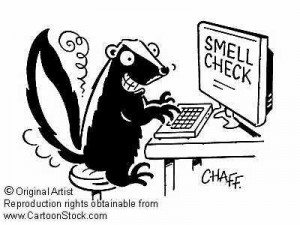Many of us have heard of the value of horticultural charcoal in gardening, not only that charcoal could retain moisture, but also some other amazing functions such as absorbing odors, purifying water, and warding off bugs and slugs. Many of these are not true, and those vendors, who have misled their customers with exaggerated, untruthful claims in their ads, are responsible for part of this confusion.
Myth #1: Barbecue Charcoal Works Just Fine
Not all charcoal are created equal. And horticultural charcoal cannot substitute by either barbecue charcoal or filtering charcoal. For more details, check the post: Horticultural Charcoal – Can be Substituted by Barbecue Charcoal or Filtering Charcoal?
Myth #2: Absorb Odors
Horticultural Charcoal does not absorb odors, nor lower the possibility of odor-causing bacteria. In order for the charcoal to absorb the compounds responsible for the foul smell of soil that has gone bad, it needs to be activated or super-heated so to create lots of air pocket to absorb odors. But horticultural charcoal is not activated, so it lacks the ability to really absorb anything.
Of course, you can use activated charcoal in aquarium shops. Those are called activated filter carbon and can be bought in aquarium shops. But in comparison with horticulture charcoal, filter carbon is very expensive. For your reference, while $6 can buy 24 oz of horticulture charcoal, it can buy only 7 oz of filter carbon.
Secondly, adding charcoal to make up ten to twenty percent of the soil volume is not going to have any odor-absorbing properties after sitting in the soil for a short while. It is like placing a small sponge into a sink full of water in hoping it will absorb all of the water.
Myth #3: Soil Enrichment
While in some reports, it is shown that charcoal can reduce the leaching of fertilizer in free draining soils, horticultural charcoal, by itself, does not enrich soil. And in order to be a good source of potash, the charcoal must first be burned. Yet, then the charcoal will lose its porosity value.
Myth #4: Purifying Soil and Water
Charcoal does not have a special purifying quality when layered into non-draining pots. In addition, it does not purify water by mixing it with soil. As mentioned earlier, horticultural charcoal is neither activated nor super heated. Hence it does not contain the necessary air pockets for optimal filtration like those carbon filtration that use activated charcoal.
Myth #5 Insects and Disease Fighter
Charcoal has been recommended as part of the treatment for the eradication of a fungal disease, Cylindrocladium, which infects Box hedges. However, horticultural charcoal per se doesn’t ward off plant diseases, parasites, insects, or slugs. In addition, it isn’t an anti-fungal agent equivalent to sulfur or copper.
Back to main page – Holticultural Charcoal for Gardening




[…] Re: Charcoal in Horticulture A few fighting words on charcoal what do you think? FROM Gardening on Cloud 9 Myths of Horticultural Charcoal in Gardening […]
Seems ur good at stating what it doesn’t do, now tell me what it does do. Now tell us what it does do.
Hi Dave,
Here in this post – http://www.gardeningoncloud9.com/200901/what-can-horticultural-charcoal-do-gardening/ – you can find out what horticultural charcoal can do in gardening. Cheers!
[…] Myths of Horticultural Charcoal in Gardening Gardening on Cloud 9 Posted by root 15 minutes ago (http://www.gardeningoncloud9.com) Jan 14 2009 and horticultural charcoal cannot substitute by either barbecue charcoal or filtering charcoal horticultural charcoal can be substituted by barbecue charcoal or filtering charcoal your comment notify me of followup comments via e mail subscrib Discuss | Bury | News | Myths of Horticultural Charcoal in Gardening Gardening on Cloud 9 […]
Er haven’t you read about the billions of pounds they are about to spend making biochar and the info on charcoal in the amazonian soils? I was under the impression that tests had been carried out. I’m trying some now but it is too early to say if it is a failure or success. I am kinda disappointed if it is all a con.
Hi Chris,
No, I haven’t read about big investment on biochar and such. Thanks for telling me about it. It would be great if you could share more information you have in this area, as well as the result of the charcoal that you are trying out now.
Cheers!
As Chris mentioned, you missed the boat here. Google biochar, charcoal or terra preta and there’s a mountain of scientific information on the goodness of charcoal, and then retract this bit of misinformation here.
BTW, not all BBQ charcoal are the same. I use regular charcoal (from wood) and not bricquets, which I think you thought of as the same.
Frank, Thanks for your sharing! Actually I did write about the advantages of horticultural charcoal in another post.
Myth #1 is not a myth. According to Dr. MINGXIN GUO, a professor of Agriculture at Delaware State University who has actually conducted research into horticultural charcoal, and has stated that barbecue charcoal, ground up, will work just fine.
Just to add my two cents; myth #1 is half right, half wrong. On the comparaison, they mention binders. There are binders in hardwood charcoal briquettes but not on lump hardwood charcoal. So if you take briquettes; yes it is a myth. But it isn’t if it’s lump charcol. One has to make sure the lump is not construction or destruction hardwood that may contain stains or preservatives.
Myth #3 is also not a myth.
Dr. Guo has stated that, according to his extensive research, “. . .the high stability and porosity make charcoal a better fertilizer than other organic materials.”
This entire website is so woefully full of ignorance. Unbelievable. Absolutely unbelievable.
Thank you Jackie for correcting the points I have mistaken here thru the extensive research result of some kind of professor. Apparently, I have made some big awful mistake that got me attracted so many horticultural charcoal fans to come and correct my faults in this subject. Yes, this is just unbelievable. Absolutely unbelievable. 😀
I have only recently been reading about terra preta and biochar, but if it is mentioned in Acres USA magazine, and it is, you know there is something to it.
Ever heard of magnetizing seeds? Lots of people would call that a myth too, but it is a scientific fact. Placing seeds on top of the North or South pole of a magnet, then planting the seeds, can and will affect the growth and development of the plant. If you want to know more about it look up the Albert Roy Davis Research Laboratory.
charcoal does absorb salts and nutes and keeps ph in check by absorbing the excess salts and nutes charcoal is neutral never grow without it i promise it helps absorb excess salts alot i used scotts know i am adding aquarium charcoal to my garden today bought it 1 hour before i read this almost forgot that i could not use cooking because of binders and over all low absorption quality
Can it be used to make black powder?
i don’t know what are you talking about charcoal not helping with filtering water or removing odors! THE WATER FILTERS IN BRAZIL, are only based on CHARCOAL filtration FOR MANY-AND-MANY YEARS, AND EVERY HOUSE HAS ONE. In Brazil no ONE drinks water from the tap (because of tropical diseases), even the treated city water pass through a charcoal filter, and then is drinkable.
You need to check it out!
thanks,
I don’t use it but it should be less likely to have fungus and bacteria already in it. Since it’s all been burned off. Stuff might still grow in it though. I just wouldn’t want black dirty water all over my carpet.
Thanks for the info! This is extremly helpful and you are also very polite.